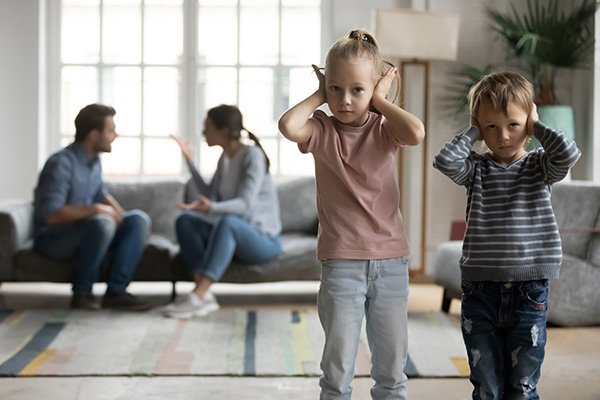When Children Get Caught In The Middle Of Divorce: Co-Parenting Better than Before, Ensuring Their Well-Being Above All
Co-parenting can be a journey filled with ups and downs, but with the right mindset and guidance, it can also be an opportunity for growth and healing.
The Importance of Collaboration
At the heart of co-parenting lies the essence of collaboration. No matter what has led to the decision to co-parent, it is crucial to shift focus from the past to the future. Remember that your ultimate goal is to provide a safe and nurturing environment for your child. By working together and putting your child's needs first, you can create a foundation of stability and support.
Effective Communication
Communication is the cornerstone of any successful co-parenting relationship. Here are a few tips to help you enhance your communication skills:
Keep conversations child-focused: When discussing matters related to your child, focus on their well-being. Avoid venting your frustrations about your ex-partner or bringing up past conflicts.
Choose the right medium: If face-to-face conversations are challenging, consider using alternative communication methods such as email or a co-parenting app. Find a method that works best for both of you to ensure clear and respectful communication.
Practice active listening: Truly listening to your parent's perspective can foster understanding and empathy. It shows that you value their opinion and are willing to work together for the sake of your child.
Establish boundaries: Set clear boundaries with your co-parent regarding communication and decision-making processes. This helps to maintain a healthy balance and prevents unnecessary conflicts.
Consistency and Routine
Children thrive in environments that provide stability and consistency. Establishing a consistent routine between both households can help your child feel secure and settled. This can include consistent bedtimes, mealtime routines, and rules that are maintained across both homes. Consistency sends a powerful message to your child—that even though circumstances have changed, they can still rely on a sense of stability and familiarity.
Embracing Flexibility
While consistency is important, it is also crucial to embrace flexibility. Life is full of unexpected twists and turns, and being open to adjusting schedules and plans can alleviate stress and tension. By demonstrating flexibility, you send a message to your child that their well-being is your top priority.
Why Go To All Of This Effort?
When co-parenting is chaotic and full of conflict, it can have significant negative impacts on children's well-being and development. Studies have shown that living in a chaotic and conflict-filled co-parenting environment can lead to adverse outcomes for children[1].
Here are some of the effects:
Poor social-emotional functioning: Chaotic co-parenting can contribute to difficulties in children's social-emotional development. Children may struggle with managing emotions, forming healthy relationships, and exhibiting appropriate behavior in social situations[1].
Cognitive development: Chaotic co-parenting can hinder children's cognitive development, including their ability to think, reason, and problem-solve. The constant exposure to conflict and instability can impair their ability to focus, concentrate, and learn effectively[1][2].
Academic achievement: Children in chaotic co-parenting situations may experience lower academic performance and have difficulties in school. The stress and disruptions caused by conflict can make it challenging for children to thrive academically[1].
Behavioral problems: The presence of ongoing conflict and chaos in the co-parenting relationship can lead to behavioral problems in children. They may exhibit aggression, conduct disorders, anxiety, and depression. These issues can persist into adolescence and adulthood if not addressed[1].
To mitigate the negative impact on children, it is crucial for co-parents to work towards reducing conflict, improving communication, and creating a more stable and nurturing environment for their children. Seeking the help of a therapist or counselor who specializes in co-parenting can provide valuable guidance and support in navigating these challenges and creating a healthier co-parenting relationship[6].
Seeking Support
You don't have to navigate the path of co-parenting alone. Seeking support from friends, family, or professional therapists can offer guidance and insight. Our team of compassionate therapists is here to help you navigate the challenges of co-parenting. We have extensive experience in working with families and can provide you with the tools and support you need to build a healthy and successful co-parenting relationship.
In the journey of co-parenting, remember to approach challenges with empathy, understanding, and a commitment to your child's well-being. The same tools we use in couples therapy apply to being the best co-parents for your children possible. By working collaboratively, communicating effectively, establishing consistency, embracing flexibility, and seeking support when needed, you can build a strong foundation for your co-parenting relationship. You are not alone on this path. We stand ready to support you every step of the way as you strive to provide the best possible future for your children. Email today to schedule a session with one of our therapists.
Sources:

